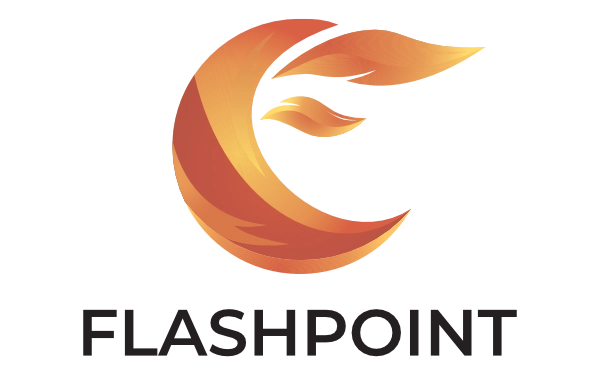By Carmen Reis, CPA, MA
Why Co-op Learning Matters
In today’s competitive job market, students need more than a diploma — they need experience. Ontario’s Specialist High Skills Major (SHSM) program gives high school students a head start by combining classroom learning with co-operative education placements, industry certifications, and career exploration.
But what’s the actual payoff of co-op experience? Research from colleges and universities across Canada shows that students who complete co-op or work-integrated learning (WIL) have stronger employment outcomes, higher wages, and smoother transitions into full-time careers.
While long-term quantitative data for high school co-op students is still limited, the results from post-secondary studies paint a clear picture: structured, supervised work experience works.
Co-op Graduates Get Better Jobs, Faster
According to Statistics Canada, among graduates from Canadian post-secondary institutions:
- 86 % of co-op college graduates were employed full-time within three years of graduation, compared to 79 % of non-co-op graduates.
- 90 % of co-op university graduates secured full-time work versus 83 % of their non-co-op peers.
- Co-op participation was directly linked to “more favourable labour-market outcomes,” including greater job stability and alignment with one’s field of study.
In other words, co-op isn’t just a résumé booster — it can act as employment accelerator.
Higher Earnings and Career Alignment
A national analysis by the C.D. Howe Institute (2023) found that co-op graduates enjoyed higher average earnings and a greater likelihood of securing permanent positions compared to non-participants.
Complementary research from Co-operative Education and Work-Integrated Learning Canada (CEWIL) confirmed that co-op graduates report:
- Higher median salaries in the first three years after graduation.
- Closer alignment between their job and field of study.
- Reduced over-qualification rates (fewer grads working in jobs below their skill level).
These are precisely the kinds of benefits SHSM aims to deliver — only earlier.
What This Means for High School SHSM Students
Although there is little formal statistical tracking at the high-school level, it is reasonable to extrapolate these trends. SHSM students complete co-operative placements, earn sector-specific certifications, and often build employer relationships before graduating.
Early exposure to workplace settings gives them:
- A better understanding of career options before committing to post-secondary education.
- Real-world experience that strengthens college, university, and apprenticeship applications.
- Transferable skills — communication, teamwork, punctuality, adaptability — that employers consistently rate as top hiring priorities.
In practice, this means SHSM students with meaningful co-op placements are already developing the same competencies that predict higher employment and wage outcomes later in life.
Why Experience Doesn’t Trump Theory but Supports It…
Employers repeatedly say that relevant experience is one of the most important factors in hiring. A report by the U.S. National Association of Colleges and Employers (NACE, 2023) found that paid co-op or internship participants receive 44 % more job offers and start at higher salaries than peers without that experience.
That pattern mirrors what Canadian research shows — students who work in structured, supervised placements transition to employment faster and with better job quality. SHSM co-ops provide the same foundation at the secondary level, giving students an early professional identity and resume-ready experience before graduation.
Engaging in alternating periods of study and employment enables students to iterate between theory and practice, continuously refining their understanding of how knowledge functions in real contexts. Beginning this process early supports the development of a balanced, adaptive approach to achieving workplace goals.
Building a Case for Tracking High School Outcomes
Despite the strong evidence from post-secondary research, high-school co-op outcomes remain under-measured. Few provinces track the long-term employment or earnings of SHSM participants versus non-participants. This presents an opportunity for school boards and training partners to lead the way by collecting data such as:
- Employment or post-secondary placement within 6 months of graduation.
- Student-reported job alignment with career goals.
- Re-employment or continuation rates with co-op host employers.
Such tracking could confirm what educators already observe anecdotally: students who learn by doing may succeed sooner and go further.
The Takeaway
SHSM’s co-operative education component is more than a curriculum feature — it’s a strategy for future success. Evidence from thousands of Canadian graduates shows that structured, paid, and supervised work experiences lead to:
- Higher full-time employment rates
- Faster job placement
- Higher early-career earnings
- Better career-fit and satisfaction
By embedding co-op opportunities directly into high school, SHSM helps students build these advantages years earlier — turning curiosity into career readiness.
Sources
- Statistics Canada (2014). Labour market outcomes for co-op and non-co-op graduates, National Graduates Survey. www150.statcan.gc.ca
- Statistics Canada summary, “Work-integrated learning and labour market outcomes,” 2014.
- C.D. Howe Institute (2023). School Co-op Programs Benefit Some Students More than Others. cdhowe.org
- CEWIL Canada (2019). Research on Co-op Earnings and Employment Outcomes. cewilcanada.ca
- National Association of Colleges and Employers (2023). Internship & Co-op Survey Report. naceweb.org

